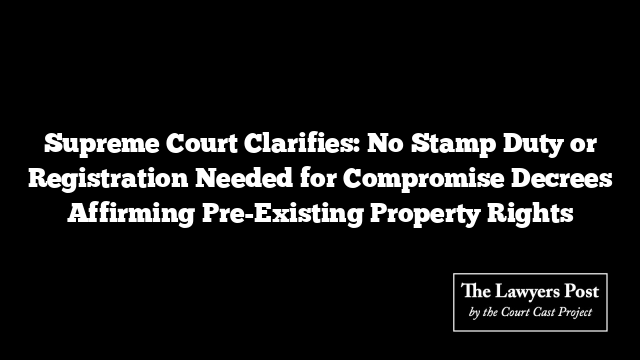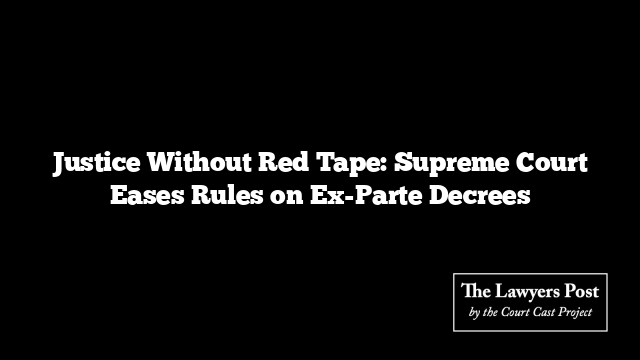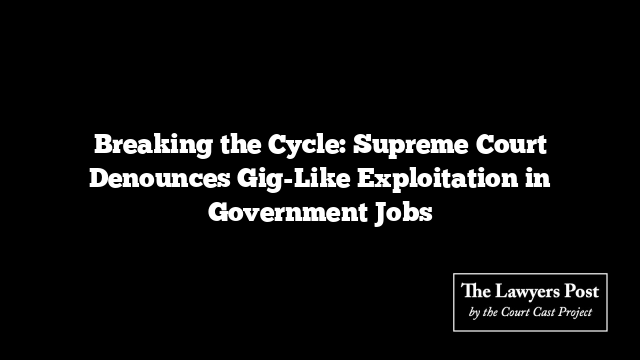In a pivotal ruling, the Supreme Court has clarified that property acquired through a compromise decree does not require registration under the Registration Act of 1908 or payment of stamp duty, provided it affirms pre-existing rights rather than creating new ones. This decision came as a relief to individuals asserting established property claims through legal settlements.
The bench, comprising Justice JB Pardiwala and Justice R Mahadevan, overturned a Madhya Pradesh High Court decision that had upheld a ₹6,67,500 stamp duty determination by the Collector of Stamps on a compromise decree.
Case Background
The case revolved around a parcel of land in Madhya Pradesh, claimed by Mukesh, the appellant, through a compromise decree issued in a civil suit resolved by the National Lok Adalat in 2013. Although the decree recognized Mukesh’s existing rights, the Tehsildar referred the matter to the Collector of Stamps, who treated the decree as a conveyance under Article 22 of the Indian Stamp Act, 1899, levying the hefty stamp duty.
Both the Board of Revenue and the High Court upheld this decision, prompting Mukesh to escalate the matter to the Supreme Court.
Supreme Court’s Reasoning
The Court meticulously analyzed the situation, highlighting three key conditions under Section 17(2)(vi) of the Registration Act:
- The decree must emerge from a bona fide compromise without collusion.
- It must pertain to the subject property under dispute.
- It must affirm a pre-existing right without creating new rights.
The bench determined these conditions were met in Mukesh’s case.
Further, the Court clarified that since the compromise decree merely affirmed pre-existing rights, it did not qualify as a conveyance under the Indian Stamp Act. Consequently, it was exempt from stamp duty.
Key Observations
The judgment stressed that the Collector of Stamps had erred in applying Article 22 of Schedule IA of the Indian Stamp Act. “The compromise decree asserts pre-existing rights and does not transfer or create new rights. Therefore, it is not liable for stamp duty,” the Court observed.
In conclusion, the Supreme Court set aside the High Court’s decision, allowing the appeal and directing authorities to update revenue records in Mukesh’s favor.
This ruling reinforces the principle that legal decrees affirming existing rights should not be burdened with additional procedural or financial requirements.





